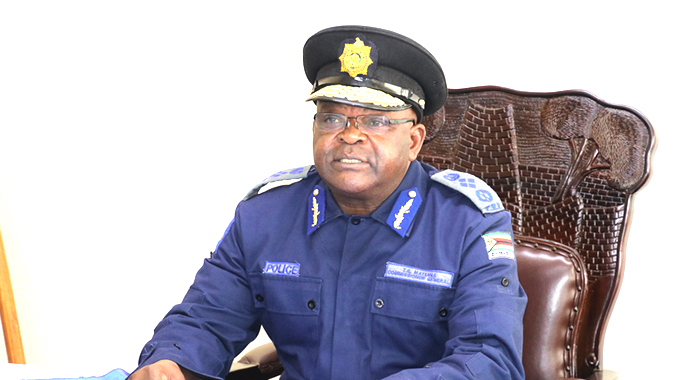B.W. Mkapa: “Mwalimu taught me the importance of listening”

by Phyllis Johnson
Ben Mkapa was a colossus in Africa, like his mentor Mwalimu Julius Nyerere, but he did not see himself that way.
“Mwalimu Julius Nyerere was undoubtedly the greatest influence on my personal growth as a leader and on my career,” he said in his memoirs. “I definitely owe an immense debt to Mwalimu for teaching me the importance of listening.”
The late former President of the United Republic of Tanzania (1995-2005), H.E. Benjamin William Mkapa believed passionately in equality and liberation and the future of Africa, and he saw himself as a servant of the people. When he saw inequalities, he spoke about it, and he spoke his mind.
For the current President of Tanzania, John Pombe Magufuli, Mkapa was his mentor.
Mkapa was Mwalimu’s foreign minister during the last stages of the liberation of Zimbabwe, including the Lancaster House negotiations, and he often spoke out in support of land reform in Zimbabwe, coming from Tanzania where the land belongs to the state and is used under lease for 33 or 99 years.
He became the third President of Tanzania, and he was a popular president, notable for being honest and forthright. He won the presidency in 1995 with 62 percent of the popular vote, in the first multiparty elections, and increased this to almost 72 percent the second time he faced the electorate in 2000.
Mkapa was President of Tanzania by the time of the Zimbabwe Democracy and Economic Recovery Act (ZIDERA) when sanctions were imposed by the US Congress, effective 2003, and he firmly opposed that, through speaking out as well as lobbying behind the scenes. He acted on what he believed in.
He believed in African unity and the removal of colonial boundaries, and in regional integration through the East African Community and the Southern African Development Community (SADC).
“Our solidarity during the political liberation can serve as a strong anchor of economic transformation. SADC has a lot of successes to be proud about. We must not shy away from celebrating our collective achievements inspired by our common history,” he said last year in the annual SADC public lecture.
And he believed in peace. When he stepped down as President in 2005, he continued to be active in mediation and some of his successes can be seen in the DRC, Kenya and Burundi.
He served his country, his continent, and his people. But he did not think this was extraordinary. This was his duty.
As President of his country, he prioritised economic development, stabilizing the macroeconomic environment and the exchange rate, widening the space for local and foreign investment, and reducing inflation to less than five percent by the time he stepped down in 2005.
The women movement in Tanzania saluted him for his commitment to implementation of the Beijing Platform for Action. He was instrumental in the passing of the SADC gender protocol, and insisted on putting the guaranteed parliamentary seats for women into the Constitution of the United Republic of Tanzania.
“We want an Africa where there is equality of gender, equality of opportunity, promise of a good healthy life, promise of an educated society, promise of a leadership that thinks more about service than being served.
“We want all of that, borders to be removed and so on. Why don’t we have it?” he asked at a Summit of former and serving leaders of Africa during Rwanda’s presidency of the African Union.
“We often think of the problem of leadership as being the problem of the leaders alone. Fine, they must have integrity, they must not be selfish, but to succeed they must be able to implant those attitudes in the population. Their political parties must be organized in such a way that they reflect those values and embody those values in their political interaction.
“We are multi-ethnic societies. What basic values have we embodied in these societies? Equality? Or is it diversity? How do you convert diversity into strength rather than diversity as a cause for war and internecine fighting? Can it be done? It can be done. Its been done in centuries before, in Europe and elsewhere. Why can’t it be done in Africa?
“But we don’t have the will because we are selfish, we are concerned in the here and now, in the seat I am in. That’s wrong,” Mkapa said.
“Its ironic but you have a continent with the best natural resources of any others, as of today, but they are being exploited for the sustenance of those who enslaved us and continue exploiting us rather than being exploited for our own ends and emancipation.
“Why? Because you do not recognize the degree of present-day enslavement, economic enslavement, and the necessity for emancipation. Its ironic, we talk about development but we don’t stop to define what development means in our situation, such as a universal system of education and health delivery. Now that is development, with assured health and education.
“The fault is with us…We really must rethink Where we are, Why we are what we are, What we can be, and How we can.”
H.E. Benjamin William Mkapa, who passed away this week at age 81, was born on 12 November 1938 in Lupaso village, Mtwara Region, in southern Tanzania near the border with Mozambique. His father wanted him to be a priest but he dropped out of the seminary, and went to St Francis College at Pugo, near Dar es Salaam, where he found his Mwalimu (Teacher) was Julius Nyerere.
He was a journalist with a degree in English literature who had a passion for reading and knowledge, and later on, the vision of a research centre where information could be collected and analysed from a regional perspective, and could circulate across borders.
Thus he encouraged us to establish the Southern African Research and Documentation Centre and he served on the first advisory council, through his friendship with my late husband, David Martin, who was an investigative journalist, one of the best, with similar passions for equality and liberation.
Phyllis Johnson is an author and historian, and a founding Director of the Southern African Research and Documentation Centre (SARDC) in Harare.







Comments